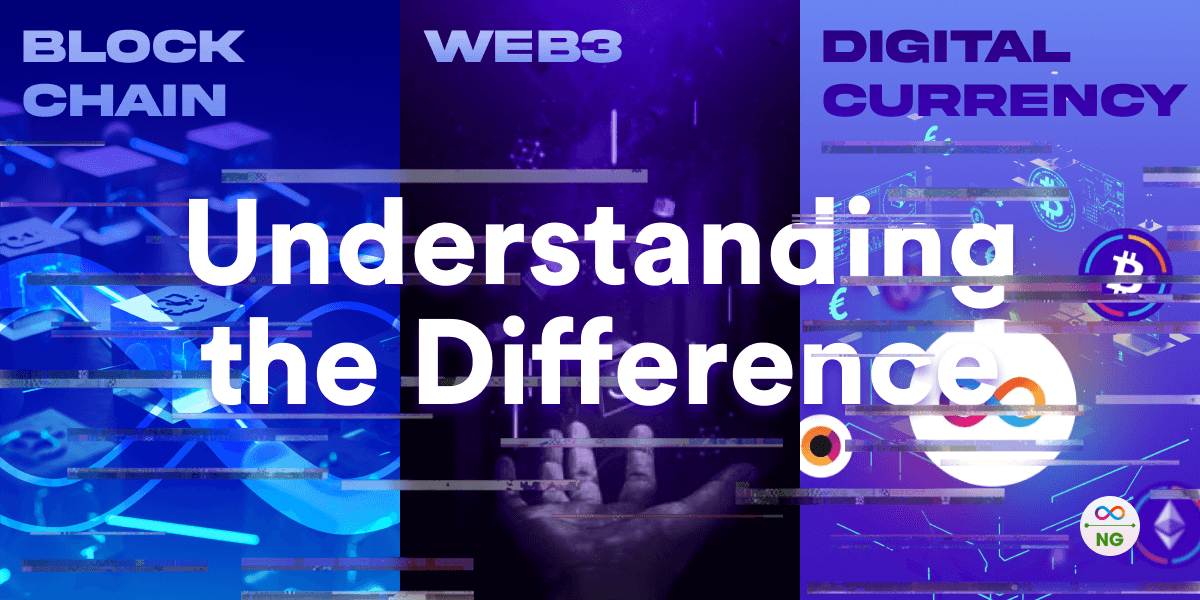
People often use Web3, blockchain, and even digital currency interchangeably, assuming they mean the same thing. That confusion is understandable. The rapid evolution of digital technology, encompassing decentralized advancements and the rise of digital currencies, has led to a flurry of buzzwords, making it easy to mix up concepts.
However, separating these terms not only enhances understanding but also reveals why Web3 is more than just blockchain or a digital currency; it’s a revolution reshaping the internet. Let's delve in.
Blockchain: The Bedrock of Decentralization
You have likely heard blockchain described as a distributed ledger technology that powers cryptocurrencies like Bitcoin. That’s correct, but blockchain’s role goes beyond digital currencies. It provides the foundation for a trustless system where transactions, data, and agreements are verified without intermediaries. Immutable and transparent, blockchain technology ensures data integrity across various sectors, from finance to supply chains.
Blockchain works through a decentralized network of nodes that validate and record transactions in a secure and irreversible manner. Unlike traditional databases controlled by a central authority, blockchain eliminates the risk of manipulation, making it a game-changer for industries requiring high levels of security and trust.
This technology is the engine behind smart contracts, NFTs, and decentralized finance (DeFi), enabling new ways to conduct business and manage digital assets.
Digital Currency: The First Major Application of Blockchain
A key breakthrough of blockchain technology is digital currency. Cryptocurrencies such as Bitcoin, Ethereum, and ICP’s native token allow peer-to-peer transactions without intermediaries like banks. This decentralization reduces transaction costs, enhances security, and provides financial inclusion for those underserved by traditional banking systems.
Beyond being a store of value or medium of exchange, digital currencies empower users in the Web3 ecosystem. They fuel decentralized applications, enable token-based governance, and facilitate smart contract execution.
Unlike traditional fiat currencies controlled by central banks, digital currencies operate on blockchain networks, ensuring transparency and resistance to censorship.
Web3: The Evolution of the Internet
Web3, on the other hand, represents an ideology—a vision for the next era of the internet. Instead of centralized platforms controlling your data and online interactions, Web3 introduces decentralized applications (dApps), self-sovereign identity, and peer-to-peer exchanges. Built on blockchain, Web3 enables users to own their digital presence, making the internet more user-centric than ever before.
Unlike Web2, where tech giants like Google, Facebook, and Amazon dominate digital interactions, Web3 shifts power back to users. Through decentralized identity systems, individuals control their online identities without relying on third-party authentication services.
Smart contracts facilitate trustless agreements, while decentralized finance (DeFi) platforms enable people to lend, borrow, and trade assets without banks. Web3 fosters transparency, security, and user ownership—core principles reshaping how the Internet functions.
ICP: The Web3 Game-Changer
The Internet Computer Protocol (ICP) perfectly illustrates this distinction. ICP doesn’t just rely on blockchain for transaction validation; it extends Web3’s capabilities by decentralizing the entire internet stack.
In contrast to traditional blockchains that focus on transactions, ICP allows developers to build fully on-chain websites, social networks, and enterprise software that operate without relying on centralized cloud providers. This is Web3 in action—an internet where you own your data, interact freely, and participate in a more transparent digital economy.
ICP also enables the seamless integration of digital currencies into decentralized applications, making it possible for users to transact in a way that aligns with Web3’s vision of financial independence.
With its ability to host smart contracts and scale Web3 applications efficiently, ICP is a pioneering force in transforming how businesses and individuals engage with blockchain technology.
Conclusion
While Web3 wouldn’t exist without blockchain, it transforms how people interact online. Blockchain secures and verifies, but Web3 creates an open and user-controlled ecosystem. Digital currencies serve as the economic backbone of this system, enabling decentralized transactions and governance.
The next time you hear someone equating these terms, you now have the clarity to separate the infrastructure from the movement—and perhaps, guide them toward the limitless possibilities of Web3 powered by blockchain innovations like ICP.
Article By: Mana Lamja